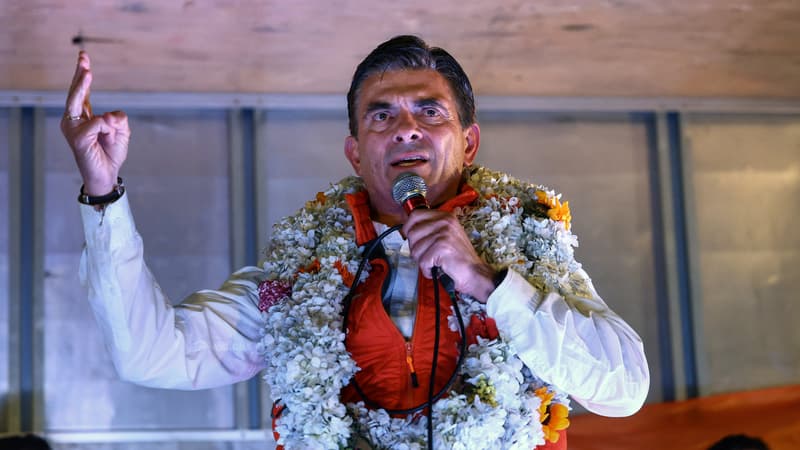Center-right senator Rodrigo Paz, elected on Sunday, October 20, as president of Bolivia after 20 years of socialist governments, inherits a country in crisis. This 58-year-old economist will have to face great challenges as soon as he takes office on November 8.
During his campaign, he advocated for a sharp reduction in public spending – particularly fuel subsidies – and greater openness to the private sector.
Defending a “capitalism for all” based on decentralization and budgetary rigor in the face of any new debt, he also expressed his desire to “reach a consensus.”
The economic challenge
Bolivia is going through its most serious economic crisis in 40 years, marked by annual inflation of more than 23% and chronic fuel shortages.
The president-elect’s main challenge will be to overcome the fuel crisis and the lack of dollars, a result of massive subsidies and the decline in gas exports, while curbing the rising cost of living.
“The stabilization of the economy will require very strong measures,” economist Napoleón Pacheco, professor at the Universidad Mayor de San Andrés in La Paz, told AFP.
According to Daniela Osorio, a political scientist at the German Institute for Global and Area Studies (GIGA), these measures could “cause a crisis in the streets.”
A distrustful population and divisions
Sociologist María Teresa Zegada, from the Universidad Mayor de San Simón in La Paz, notes the “growing disaffection of the population towards politics.”
“I would like the new government to roll up its sleeves and really work, not like the previous ones (…) who, in reality, only worked for their own pockets,” María Choquetapi, an Aymara woman from the small town of Laja, about 30 kilometers from La Paz, told AFP.
The results further illustrate the country’s traditional division: the more conservative and prosperous East voted mainly for his right-wing rival Jorge Quiroga, while the more modest West with a large indigenous population supported Rodrigo Paz.
“The divisions between East and West, as well as between urban and rural areas, have been reactivated,” says Daniela Osorio.
A fragmented Parliament
Rodrigo Paz, who came first in the first round in August, will have the largest parliamentary group, ahead of Jorge Quiroga.
By not having a majority, the president-elect will have to “seek agreements,” observes María Teresa Zegada.
Their parties will concentrate almost the entire Parliament: the four right-wing parties will occupy 119 of the 130 seats in the deputies and the 36 seats in the Senate.
Therefore, the future president will have to deal with his rivals, despite “the wounds that are difficult to heal” left by the second round campaign, observes Daniela Osorio.
The shadow of Evo Morales
Ineligible, former President Evo Morales (2006-2019) could not run for president. But it continues to weigh on political life.
The country’s first Native American head of state, he requested a null vote in the first round: the null votes reached 19.8% of the votes, a record since 2002.
But his influence waned after the division of the Movement towards Socialism (MAS), undermined by his rivalry with outgoing president Luis Arce and the candidacy of his former protégé Andrónico Rodríguez.
Weakened by an arrest warrant for trafficking in minors, which he contests, he lives entrenched in his stronghold of Chapare (center).
“Even weakened, Morales continues to be a destabilizing factor,” warns Daniela Osorio. His supporters “have already warned that if the next government does not keep its promises, they will reorganize to overthrow him,” adds María Teresa Zegada.
Source: BFM TV


